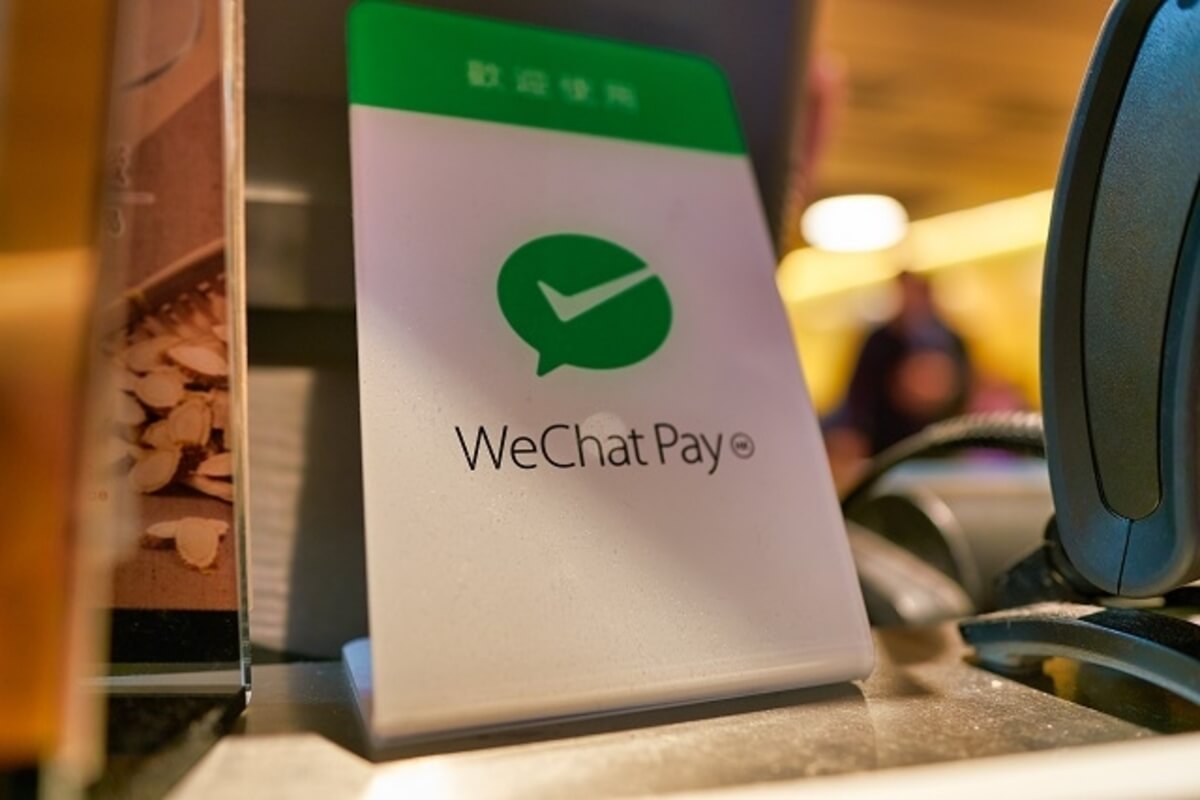[ad_1]

Payment platform WeChat Pay began its own digital yuan journey, at the time when millions of Chinese citizens are getting their first taste of what life is like with a central bank digital currency (CBDC) – as citizens in some of the country’s biggest cities began using a pilot version of a CBDC app.
WeChat Pay, operated by the tech giant Tencent, is one of China’s biggest digital pay platforms, and together with the Ant Group’s Alipay (part of the Alibaba business empire), represents a whopping 15% of the entire Chinese payments market.
Interoperability with the platform will be seen as a major step forward for Beijing – which many argue wants to cut into both the digital payments and the crypto markets with its new token.
Crypto has been shunted aside by two sweeping crackdowns, the most recent of which came in September last year. And unlike other CBDC projects, Beijing says its digital yuan initiative does not make use of blockchain technology.
The central People’s Bank of China (PBoC) has refused to commit itself to a full national rollout, but many of the most populous parts of the country already enjoy access to the digital yuan thanks to a fast-expanding pilot, and the bank is confident that the token will be ready to showcase to the world at the Winter Olympics, to be held in the capital early next month. Beijing’s Olympics sites are part of the pilot.
Per the media outlets Sina and Hexun, WeChat Pay users can access digital yuan functionality via the WeBank service by completing a quick verification process, and are now able to pay using the token by “scanning a digital yuan payment code on WeChat,” or by allowing merchants to scan a code using their own devices.
‘Digitizing the last mile’ of the consumer journey
Although the PBoC is still keen to downplay the significance of developments like these, WeChat Pay’s user base is gigantic. More than a simple chat app, WeChat is also a digital marketplace, an e-commerce gateway, a gaming hub and has further internet functionality. The platform has over 1bn users, many of whom are WeChat Pay customers.
Alipay users will likely be able to access the token soon, too. Users in pilot areas may be able to access the CBDC app via its affiliate, the online lending network MYBank. Alipay has also been involved in piloting digital yuan payments, and could well follow suit with its biggest rival.
Yicai reported that major online players have also clambered aboard the digital yuan train. The most notable of these is one of the nation’s biggest e-commerce platforms, Jingdong Mall (also known as JD.com). Together with Alibaba’s e-commerce wing Tmall (which has also begun accepting the digital yuan as a payment method), the two firms represent the lion’s share of the online retail market in China.
Last year, the Ele.me food delivery platform and the Hema chain of grocery stores also started accepting digital yuan pay in pilot areas. Both are Alibaba-owned.
Yicai reported that Meituan Waimai, one of the biggest food delivery networks in the country, has also added digital yuan wallet payment options.
The same media outlet quoted experts as stating that other banks would soon be added to the nine or so financial institutions offering digital yuan wallet services, with more online industries set to add interoperability functions.
Zhou Weiran, PwC’s managing partner of Technology, Media and Telecommunications, was quoted as claiming that the digital yuan had the power to “digitize the last mile” of the consumer journey, and would let banks and merchants access consumer behavior data and gain insight into the public’s spending patterns.
However, Zhou noted that “large-scale adoption” would “not happen overnight” – with many still keen on alternative digital solutions such as Alipay and WeChat Pay or cash.
____
Learn more:
– Chinese Central Bank’s Digital Yuan App Hits Apple, Android Stores
– Chinese Central Gov’t Wants to Create ‘Digital Asset Exchanges’ as CBDC Nears
– Recent Chinese Bitcoin Court Ruling ‘Not an Isolated Case’ & Part of ‘an Ongoing Trend’
– Chinese Banks ‘Educate’ the Public on the Pitfalls of Crypto
[ad_2]
cryptonews.com




